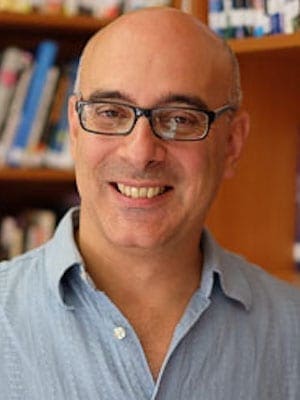Living in Lebanon when you have the opportunity to leave is a choice that demands a “theology of staying.”
Four ideas, which may form the starting components of such a theology, come to mind when I consider why my family remains in Lebanon.
First, a theology of staying is rooted in a fundamental trust in God.
It reflects the recognition that God is master of all, that my life belongs to him and that I am primarily a steward of it.
I am invited to develop a healthy sense of ownership over my life, one that will motivate me to take care of it and put some reasonable structure and order into it, but I can never really “save it.”
Jesus put it like this: “Those who want to save their life will lose it, but those who lose their life for me will save it. What good is it for a person to gain the whole world, and yet lose or forfeit their very self?” (Luke 9:24-25).
Risk is all around us wherever we live. For example, I incur risk when I cross a street in Switzerland, but I manage that risk because I know it is safer to cross on green than on red. We do not flee risk; we manage it.
Second, a theology of staying is founded on a fundamental belief in the equal value of all human life.
I find it slightly insulting when foreigners jump on the first flight out of the country every time the security situation gets rough in Lebanon.
When well-meaning members of nongovernmental organizations and mission organizations who have come on a mandate to offer physical and spiritual support to those in need are only able or willing to do so in times of peace and stability, it becomes slightly demoralizing for those who stay back.
At a deep level, leaving at times of greatest need communicates to those staying – no doubt unintentionally – a message of “my life is more valuable than yours.”
Therefore, a theology of staying affirms fundamentally “my life is as valuable as every other life, not more and not less.”
Third, a theology of staying is rooted in a mature acceptance of the mysterious nature of evil.
Fleeing is a capitulation to the black-and-white worldview. It explains away the source of evil by avoiding asking the tough questions underlying the reasons for danger.
The overly simplistic logic is “People around me are bad and they are doing bad things; therefore, I must leave.”
Perhaps one of the cruelest lessons of the horrifying Syrian conflict is that it offers no clarity on who is the “good guy” and who is the “bad guy.”
Who are Syrian refugees in Lebanon fleeing from, and which or who is the evil that has driven them out? Do I really have to stay in order to find out?
Fourth, a theology of staying is realistic in recognizing the all-embracing nature of sin.
If I were to leave, what would I be fleeing from, seeing as I am so hopelessly interwoven in the humanity that produces all this evil that so terrifies me?
Someone recently said to me, reflecting on the Syrian situation, seemingly seriously puzzled, “We know Bashar Assad. He’s the bad guy! But who are the good guys? Who do we support in this conflict?”
Perhaps this simplistic “good guy/bad guy” worldview fosters the evil that continues to grind at our humanity.
In this view, we are always the “good guys,” of course. And the other guys who disagree with us must necessarily be the “bad guys.”
If we get rid of them, then good will prevail. And we will have done this all in the name of morality and the greater good. But aren’t such statements the stuff that constitutes the rhetoric of war?
Could it be that a more healthy and mature understanding of sin and evil will only be found on less certain and less beaten tracks?
Or perhaps I am closest to understanding it when I look in the mirror and ask, “Where is my part in all of this? Am I just a spectator? A victim of bad people?”
My theology of staying tells me that I am an intrinsic part of the problem and, therefore, that my only option is to stay and try and own up to my part of the responsibility.
It stirs me relentlessly to search for a solution, along with all those that are willing to do so as well.
 Martin Accad is director of the Institute of Middle East Studies at Arab Baptist Theological Seminary in Beirut. A version of this column first appeared on the IMES blog and is used with permission.
Martin Accad is director of the Institute of Middle East Studies at Arab Baptist Theological Seminary in Beirut. A version of this column first appeared on the IMES blog and is used with permission.
Editor’s note: This is the second of a two-part series on a theology of staying. Part 1 is available here.

